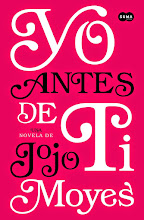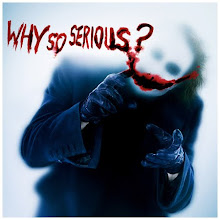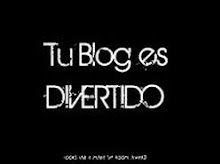 Hace casi 2 años ví la peli basada en esta novela y me tiré casi todo el tiempo llorando... Así que sorprendida por todo lo que me había hecho sentir, decidí hacerme con el original, y como no en inglés.
Hace casi 2 años ví la peli basada en esta novela y me tiré casi todo el tiempo llorando... Así que sorprendida por todo lo que me había hecho sentir, decidí hacerme con el original, y como no en inglés.
Obviamente la película me encantó y tengo que reconocer que la he visto unas cuantas veces. Por lo que seguramente ésto me ha influido bastante a la hora de leer el libro, ya que esperaba que fuera como el film. Y cómo no, me equivoqué.
No me ha decepcionado, pero tampoco me ha terminado de apasionar tanto como esperaba o como la película.
"La decisión más difícil" (título en castellano) se estructura en capítulos narrados por los diferentes personajes, lo que ofrece distintos puntos de vistas sobre el tema en cuestión y da más dinamismo a la lectura de la novela.

Y como suele pasar con casi todas (o todas) las adaptaciones de novelas, ésta profundiza más en historias y personajes, lo que se agradece.
¡ATENCIÓN: SPOILER! Pero lo que sin duda más me ha sorprendido ha sido su final, completamente inesperado, diferente al de la peli y mucho más triste.
Según he leído, parece que a Jodi Picoult, su autora, le gusta tratar temas éticos, morales y de actualidad en sus novelas para que el lector reflexione, por lo que QUIZÁS lea algo más suyo en el futuro.

"A rainbow might as well have cracked down the middle of that big mahogany desk. 'Mr Alexander,' I say, 'my sister has leukemia.'
'I'm sorry to hear that. But even if I were willing to litigate against God again, which I'm not, you can't bring a lawsuit on someone else's behalf.'
There is way too much to explain - my own blood seeping into my sister's vein; the nurses holding me down to stick me for white cells Kate might borrow; the doctor saying they didn't get enough the first time around. The bruises and the deep bone ache after I gave up my marrow; the shots that sparked more stem cells in me, so that there'd be extra for my sister. The fact that I'm not sick, but I might as well be. The fact that the only reason I was born was as a harvest crop for Kate. The fact that even now, a major decision about me is being made, and no one's bothered to ask the one person who most deserves it to speak her opinion.
There's way too much to explain, and so I do the best I can. 'It's not God. Just my parents,' I say. 'I want to sue them for the rights to my own body.' (ANNA)"

"When I first became a parent I used to lie in bed at night and imagine the most horrible succession of maladies: the bite of a jellyfish, the taste of a poisonous berry, the smile of a dangerous stranger, the dive into a shallow pool. There are so many ways a child can be harmed that it seems nearly impossible one person alone could succeed at keeping him safe. As my children got older, the hazards only changed: inhaling glue, playing with matches, small pink pills sold behind the bleachers of the middle school. You can stay up all night and still not count all the ways to lose the people you love.
It seems to me, none that this is more than just a hypothetical, that a parent falls one of two ways when told a child has a fatal disease. Either you dissolve into a puddle, or you take the blow on the cheek and force yourself to lift your face again for more. In this, we probably look a lot like the patients (SARA)"
 "The arsenic, which ultimately put Kate into remission, worked its magic by wearing her down. Taylor Ambrose, a drug of an entirely different sort, works his magic by building her up. It becomes a habit: when the phone rings at seven P.M., Kate flies from the dinner table and hides in a closet with the portable receiver. The rest of us clear the dinner plates and spend time in the living room and get ready for bed, hearing little more than giggles and whispers, and then Kate emerges from her cocoon, flushed and glowing, first love beating like a hummingbird at the pulse in her throat. Every time it happens, I can't stop staring. It is not that Kate is so beautiful, although she is; it's that I never really let myself believe that I would see her all grown up. (SARA)"
"The arsenic, which ultimately put Kate into remission, worked its magic by wearing her down. Taylor Ambrose, a drug of an entirely different sort, works his magic by building her up. It becomes a habit: when the phone rings at seven P.M., Kate flies from the dinner table and hides in a closet with the portable receiver. The rest of us clear the dinner plates and spend time in the living room and get ready for bed, hearing little more than giggles and whispers, and then Kate emerges from her cocoon, flushed and glowing, first love beating like a hummingbird at the pulse in her throat. Every time it happens, I can't stop staring. It is not that Kate is so beautiful, although she is; it's that I never really let myself believe that I would see her all grown up. (SARA)"

"I take a deep breath. 'In my life, though, that building was on fire, one of my children was in it - and the only opportunity so save her was to send in my other child, because she was the only one who knew the way. Did I know I was taking a risk? Of course. Did I realize it meant maybe losing both of them? Yes. Did I understand that maybe it wasn't fair to ask her to do it? Absolutely. But I also knew that it was the only chance I had to keep both of them. Was it legal? Was it moral? Was it crazy or foolish or cruel? I don't know. But I do know it was right.' (SARA)"

domingo, 18 de septiembre de 2011
"MY SISTER'S KEEPER" DE JODI PICOULT (2004)
Publicado por Laura en 10:23 a. m.
Suscribirse a:
Enviar comentarios (Atom)















0 comentarios:
Publicar un comentario